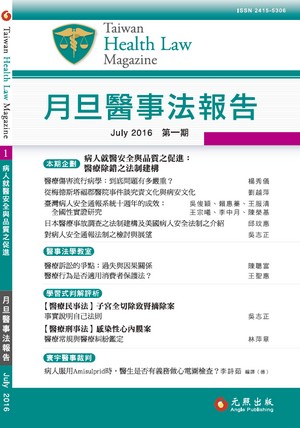【醫療民事法】子宮全切除致腎摘除案:事實說明自己法則【學習式判解評析】 試閱
Case of Post-hysterectomy Nephrectomy : Doctrine of “Res ipsa loquitur”
判決字號 臺灣臺北地方法院89年度重訴字第472號民事判決、臺灣高等法院91年度上字第371號民事判決
引用法條 民法第184條、188條、224條、227條,民事訴訟法第277條
原告因被告醫師於1998年4月16日實施子宮肌瘤切除手術後引發腹膜炎,且左側輸尿管因損傷而阻塞,嗣併發左腎水腫,陸續接受數次手術,於1999年7月31日摘除左腎。原告認其左腎遭切除之傷害係被告醫師過失所致,遂提訴請求損害賠償。
The plaintiff received hysterectomy performed by the defendant under the impression of myoma, and suffered from post-operatively from peritonitis, left ureter injury, and subsequently left hydronephrosis. Several subsequent operations were performed to preserve left urinary tract but in vain, and only led to left nephrectomy. The plaintiff claimed for damages.
The court applied the doctrine of “Res ipsa loquitur” to shift the burden of proof toward the defendant, and found for the plaintiff. The reasoning is that since the ureter injury after hysterectomy is only 1%, so rare that it won’t happen if the defendant should have exerted the reasonable prudent technique. Besides, the complication is caused by surgical instrument and situation within the exclusive control of the defendant, and is not caused by any voluntary action or contribution on the part of the plaintiff.
This review article elaborates in-depth what the 1% complication stands for in medical literature and explores the feasibility of applying the doctrine of “Res ipsa loquitur” in this case. This review holds that in medical malpractice litigation the court should order expert testimony, or request an agency or organization to conduct an investigation to determine the matter of facts conform to the elements of doctrine of “Res ipsa loquitur” or not, in order to assess the feasibility of applying this doctrine.
102-115






